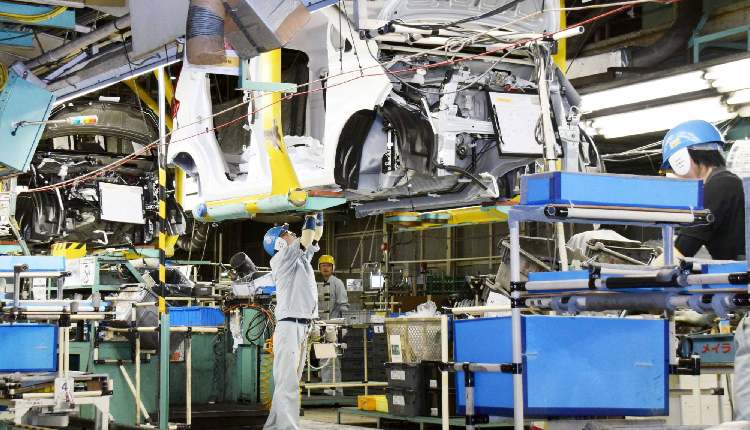Japan’s core machinery orders fell more than expected in January on the back of a weak manufacturing sector, prompting the government to downgrade its view on the indicator for the first time in more than a year, Reuters reported citing data released on Monday.
The data, released on Monday by the Cabinet Office, follows recent data that highlighted concerns about the sluggish recovery in the world’s fourth-biggest economy.
It comes as the Bank of Japan (BOJ) kicks off its two-day monetary policy meeting, although core machinery orders data is unlikely to have a significant bearing on the central bank’s decision, according to an economist.
Core orders, a highly volatile data series regarded as a leading indicator of capital spending in the six to nine months ahead, fell 1.7 per cent in January from the previous month, the data showed.
The decline was bigger than a 1.0 per cent drop expected by economists in a Reuters poll and followed a 1.9 per cent gain in December.
Weak production against a backdrop of weak demand for goods and production suspension at automakers and uncertainty over the impact of the New Year’s Day earthquake in Noto Peninsula might have motivated manufacturers to push back capital investment, said Kota Suzuki, an economist at Daiwa Securities.
The government lowered its view of machinery orders for the first time since November 2022, changing to “showing some weakness” from “stalling”.
It made the downward revision after factoring in the October-December three-month average on the data, a Cabinet Office official said.
On a year-on-year (YoY) basis, core orders, which exclude volatile numbers from shipping and electric utilities, contracted 10.9 per cent, slightly smaller than the forecast 11.2 per cent slump.
By sector, orders from manufacturers was down 13.2 per cent in January from the previous month, dragged by chemicals industries and motor vehicles.
It was unclear whether irregularities in certification tests by Toyota Motor’s affiliate Toyota Industries had any impact, the Cabinet Office official said.
Service-sector orders grew 6.5 per cent.
ECONOMIC WEAKNESS PERSISTS
Major Japanese firms have unexpectedly increased pay, raising the likelihood of the Japanese central bank ending its negative interest rate policy at the upcoming meeting. This potential shift would mark Japan’s first interest rate hike since 2007.
Despite firm capital investment, policymakers and the government have highlighted areas of economic weakness.
BOJ Governor Kazuo Ueda noted last week that while the economy is recovering, there are signs of weakness, tempering his previous assessment.
Revised government data revealed that Japan’s economy narrowly avoided a technical recession at the end of last year, though the upward revision in the fourth quarter was less than anticipated.
